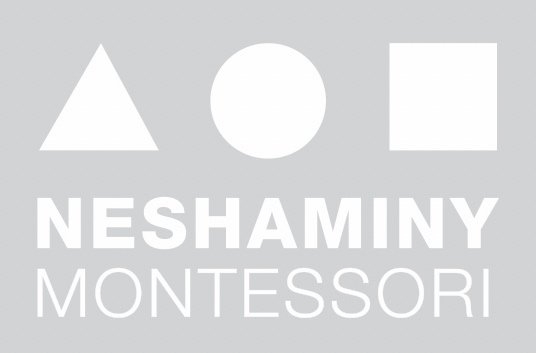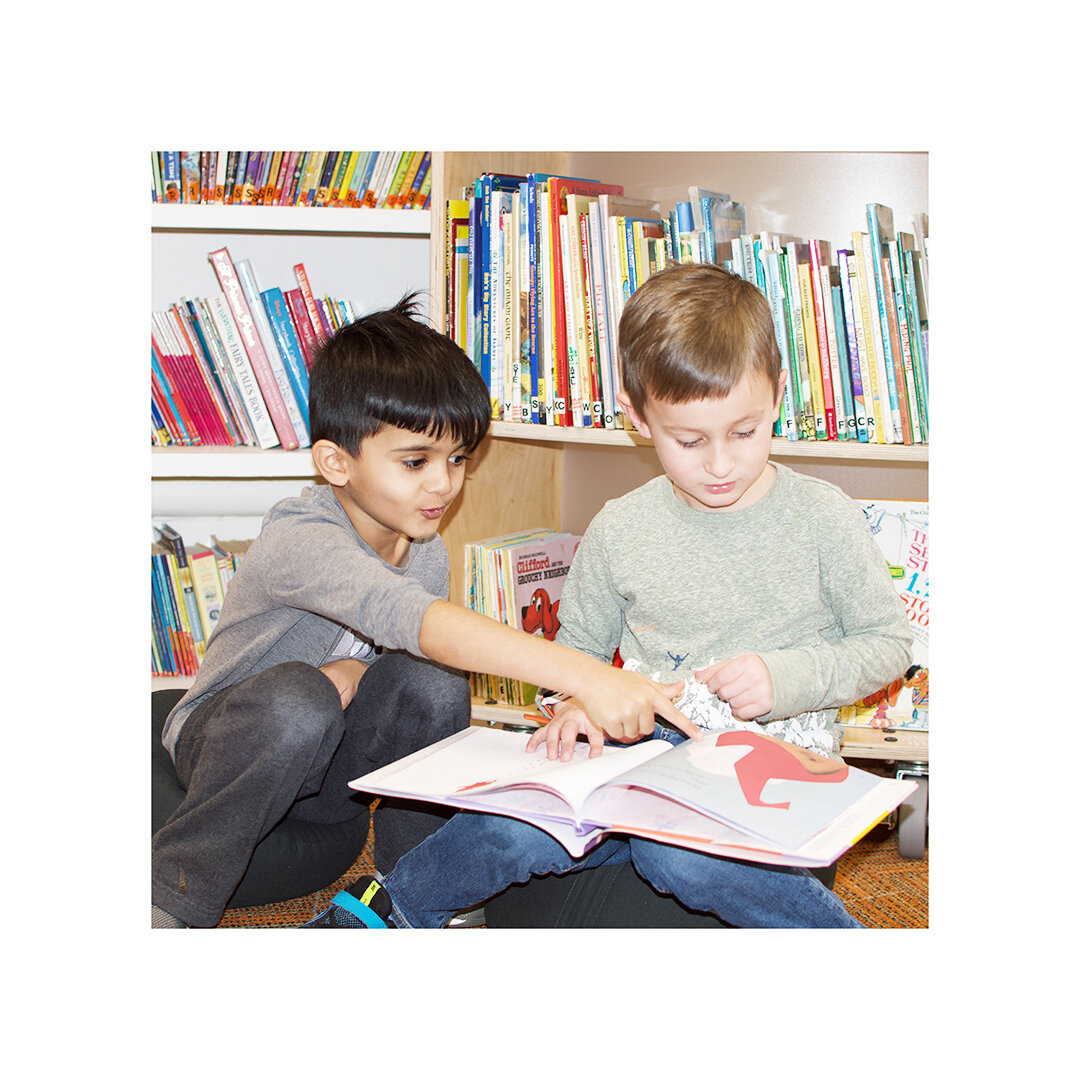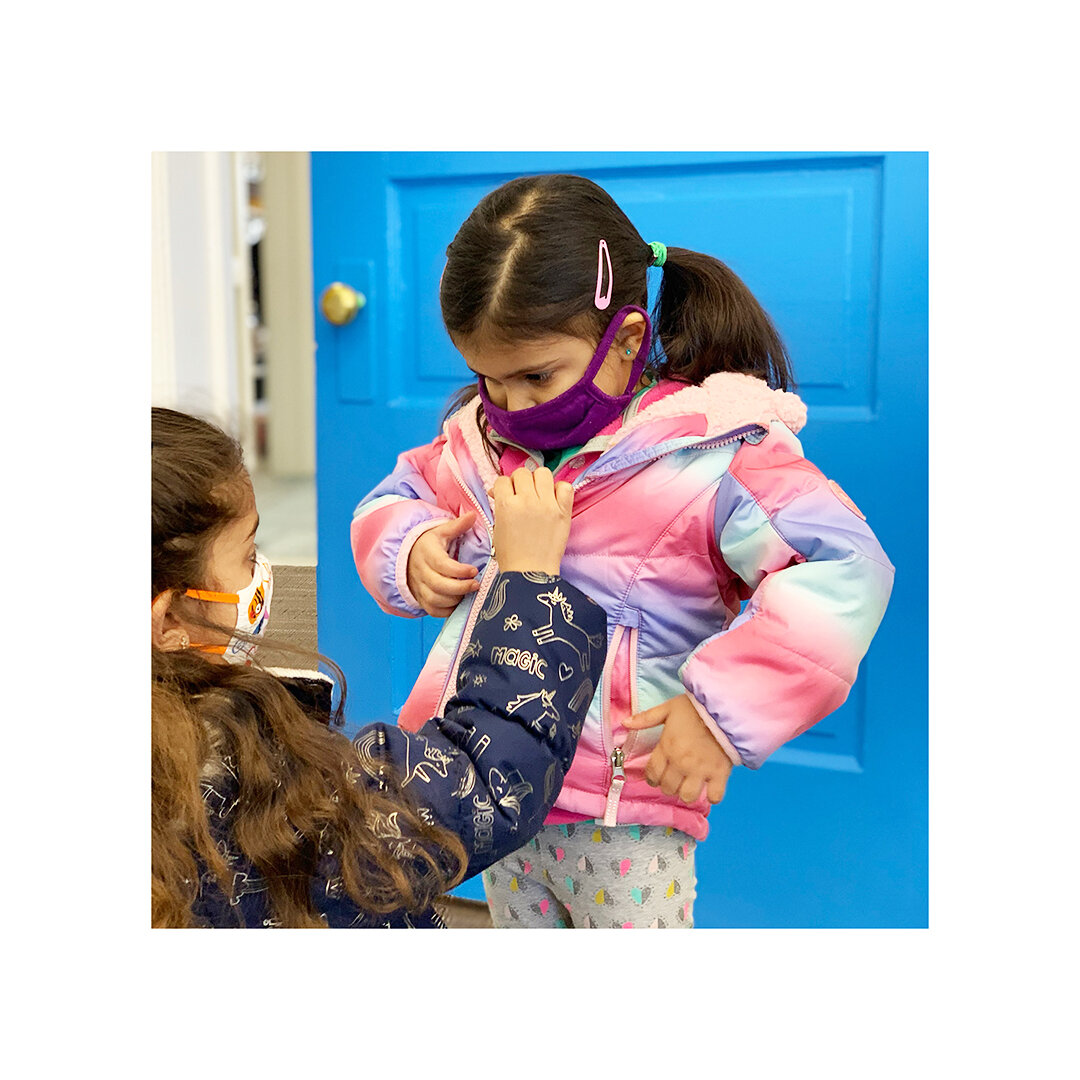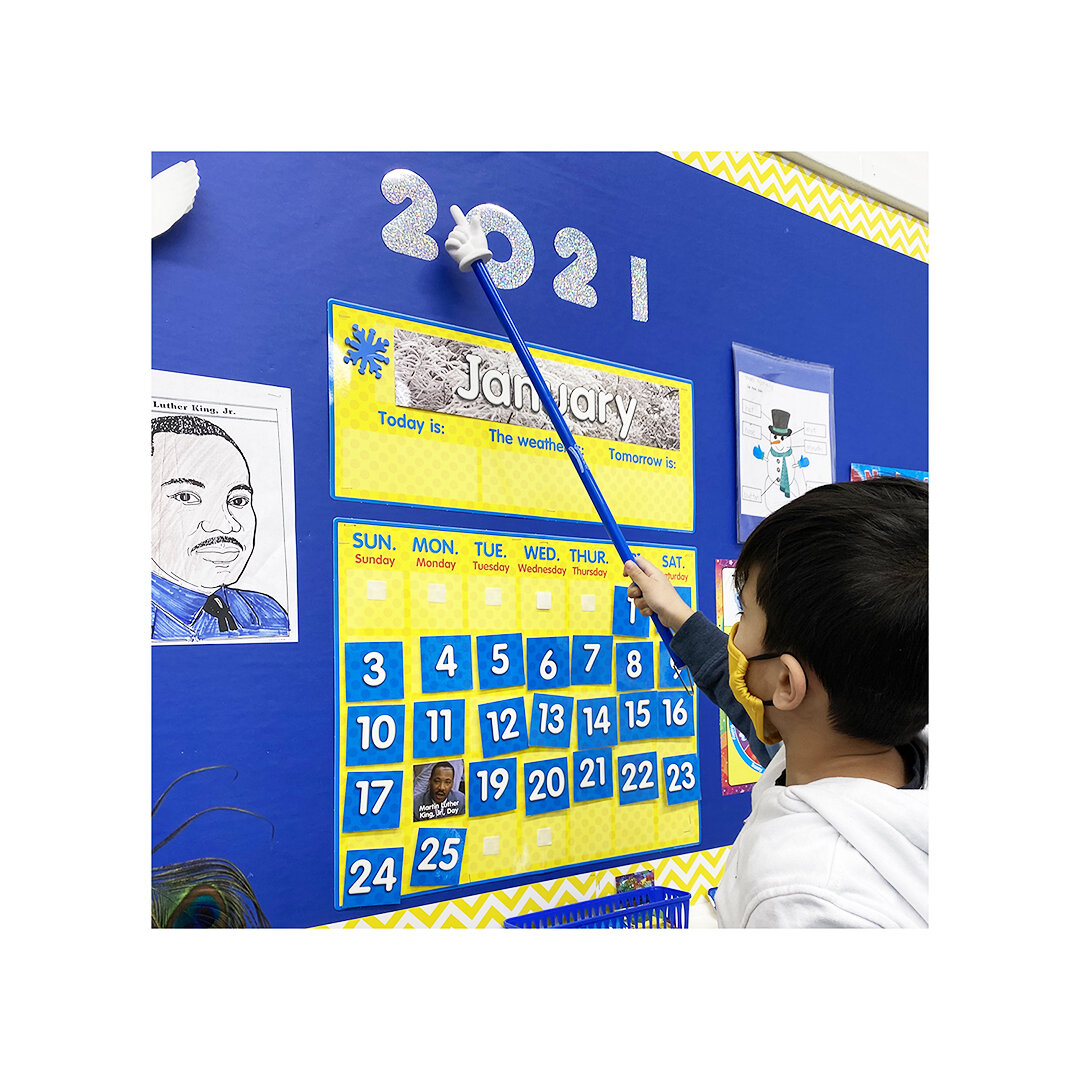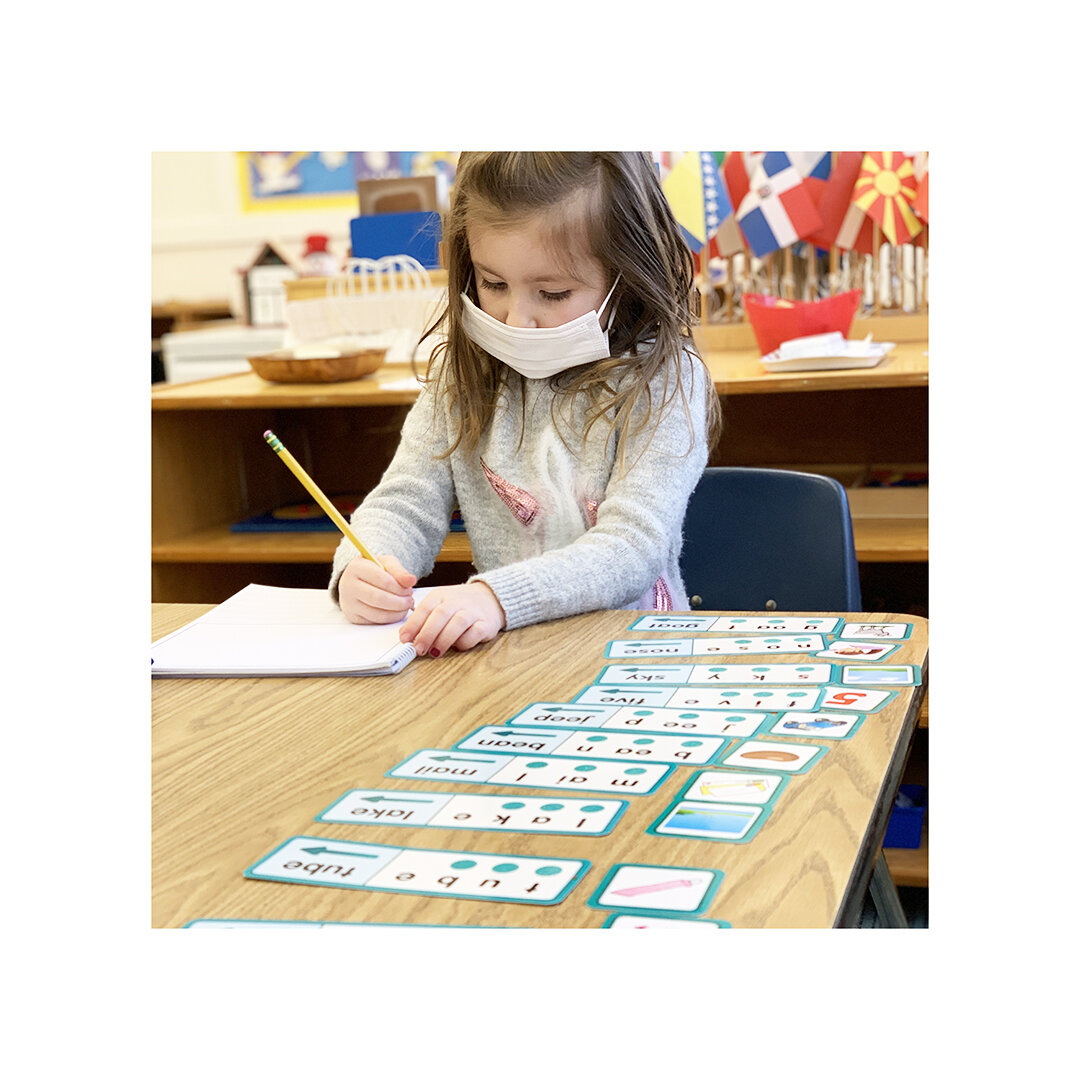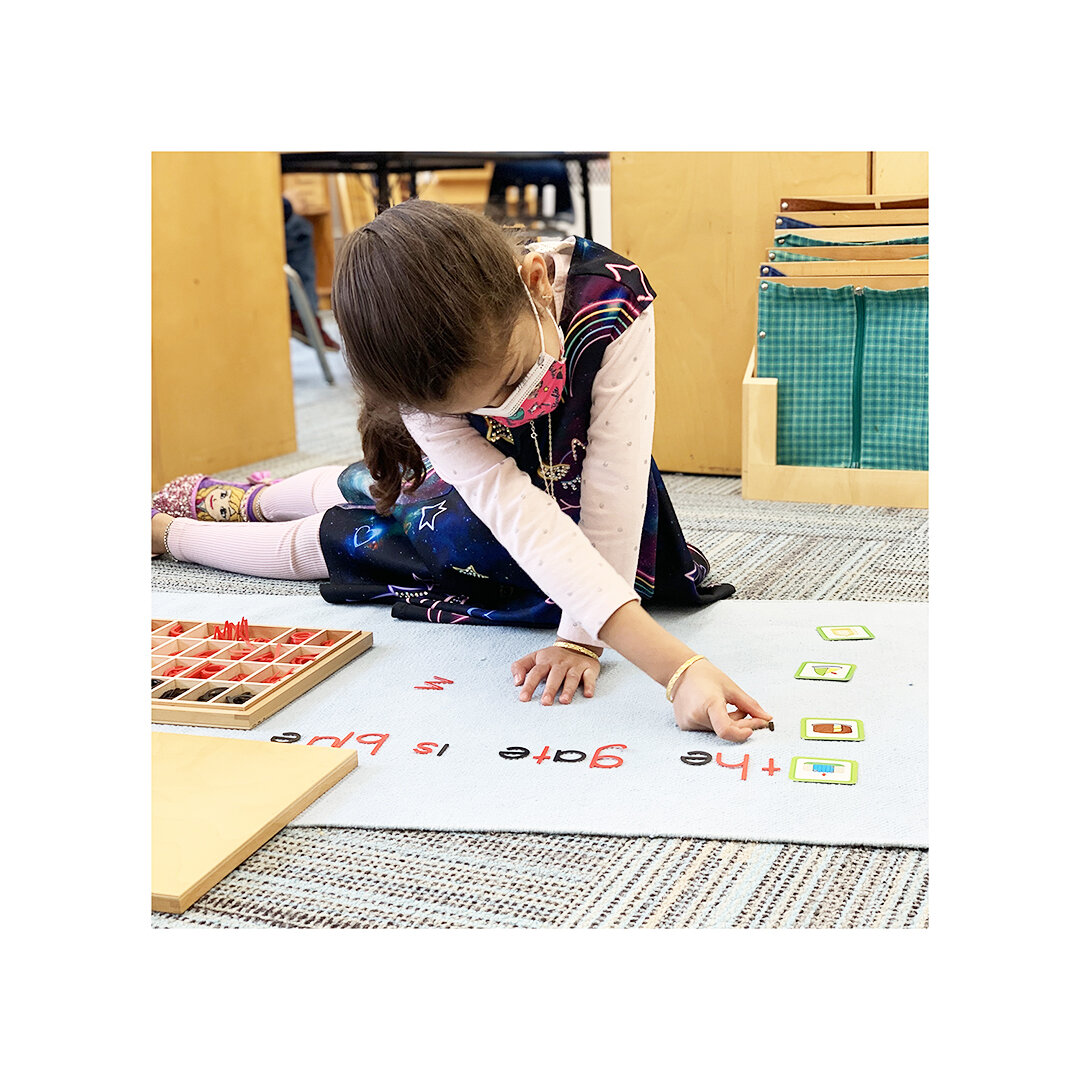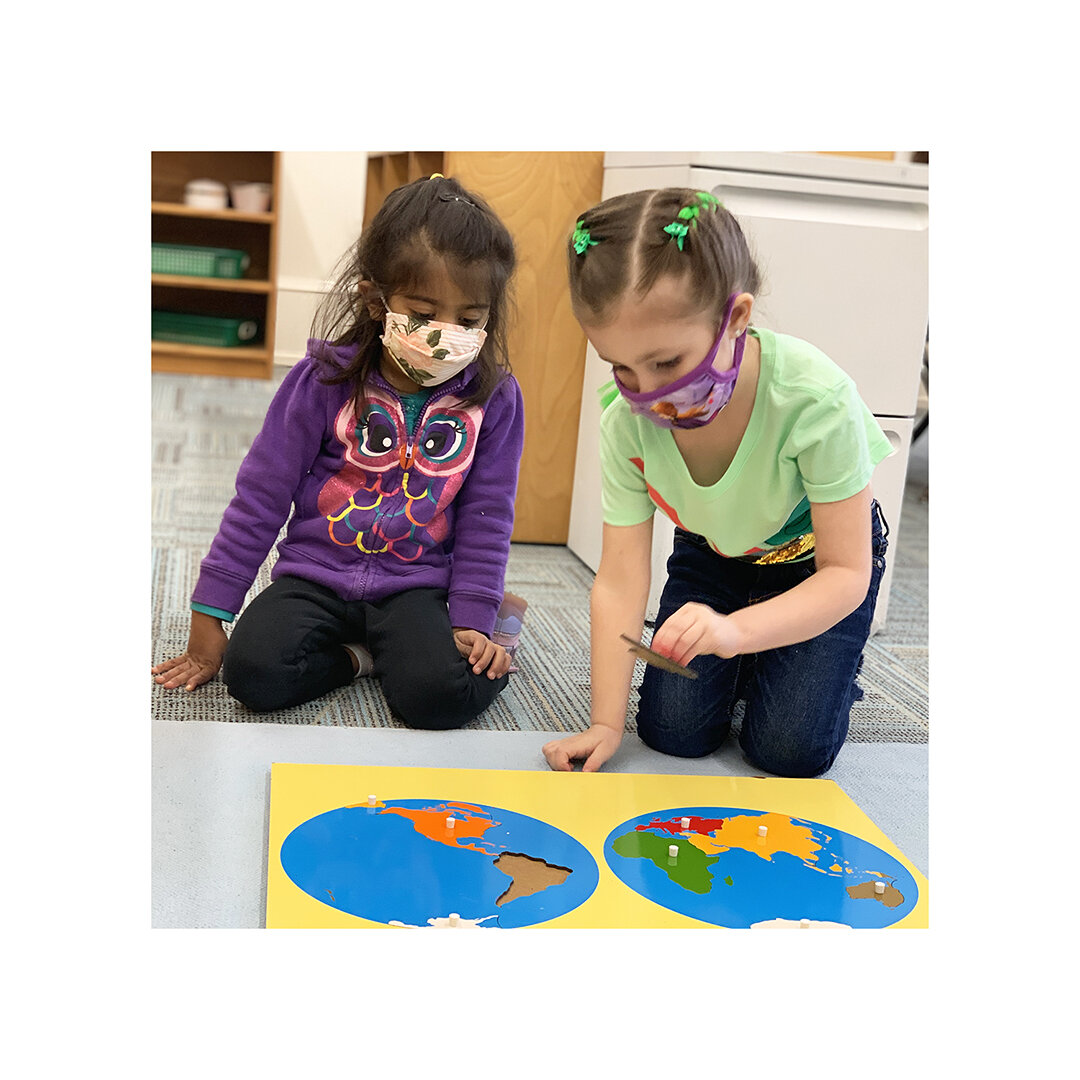The Montessori curriculum and method provide a wonderful array of sequenced concepts for the early child. Carefully ordered by program age and from general to specific/simple to complex, the Montessori classroom allows the child freedom, flexibility, and mastery of learning in many areas: Language, Mathematics, Sensorial, Practical Life, Science, Geography, Culture, Music, and more.
Taking a child out of the Montessori classroom before the kindergarten year is like picking a flower before it is ready to bloom. The Montessori curriculum is an ongoing process which encompasses a large range of subject matter. By the third and final kindergarten year, those lessons will begin to coalesce into knowledge and skills that will follow your young scholar throughout his /her lifetime. Children spend the first two years in the classroom experimenting, observing, and discovering. The final classroom year is where the real mastery of learning takes place.
Two years of tracking objects from left to right, phonemic awareness activities, one to one correspondence, and fine motor exercises become a clear understanding of the decimal system, a mastery of subtraction and addition, grammar analysis, and a proficiency in reading and writing. Children who stay with us through their third year are well equipped for their journey into the elementary grades.
The benefits of the Kindergarten year in our Montessori classrooms are not only academic. The final year in the primary classroom promotes leadership skills, empathy, and build’s a child’s self- confidence. The older children are identified as third years “the leaders of the pack”. They help the younger students with subject matter, lead Storytime, and are role models to the other children in the classroom. By being the oldest in the room, kindergarten children are encouraged to look after their younger classmates creating a sense of responsibility and empathy. A five-year-old in our Montessori classrooms will often teach lessons to their younger friends and correct errors. The benefit to this is two-fold, the kindergarten child is solidifying their knowledge by showing mastery and the younger child is being taught a lesson by their peer in an exciting and engaging way. Anyone who has ever had to teach a skill to someone else may recall that the very process of explaining a new concept, or helping someone practice a new skill leads the teacher to learn as much, if not more, than the student.
It is difficult to deny the social and emotional benefits of our Montessori Kindergarten program. Through leading circle and Storytime, taking on more responsibility in the classroom, and becoming empowered and responsible members of the community, third year students are taught character skills that will follow them throughout their lifetime-- blossoming into an amazing, consciously self-directed learner!
Dr. Montessori believed that “The hands are the instruments of the mind.” The child, the teacher, and the environment form an amazing learning triangle.
